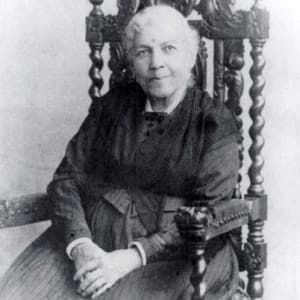
James Foley
James Foley was an American journalist who worked in war zones around the world. He was killed by ISIS in 2014.
Synopsis
Raised in New Hampshire, James Foley taught public school for several years before beginning his career as a war journalist in 2008. He worked in Iraq and Afghanistan, then later Libya, where he was taken hostage in 2011. He was released after 45 days. In late 2012, while working in Syria, he was taken hostage by ISIS. He was killed by his captors in August 2014.
Early Years
James Wright “Jim” Foley, was born October 18, 1973, in Evanston, Illinois. The oldest of five children, Foley was a young boy when his parents, Diane and John Foley, moved the family to Wolfeboro, New Hampshire. The Foleys remained in the upper middle class resort town for the remainder of James’ childhood.
Following his graduation from Kingswood Regional High School in 1992, Foley enrolled at Marquette University, where he studied writing and played on the school’s rugby team. He graduated in 1996.
Baked into Foley’s identity was a curiosity to see the world and make it a different place. For a time that took the form of teaching and through the Teach for America program, Foley headed a classroom in Phoenix for four years. He later taught reading and writing to inmates in a vocational rehabilitation program in Chicago.
In 2002, Foley earned his MFA in writing from the University of Massachusetts. An interest in journalism then led him to earn a master’s in the subject from the Medill School of Journalism at Northwestern University in 2008.
Career
Foley’s interests as a journalist drew him to areas of conflict. His early work came as a reporting officer in Baghdad for the United States Agency for International Development, a government run organization that administered civilian aid. In March 2010 he started an eight-month stint as a freelance reporter embedded with US troops in Afghanistan.
The aim of his work, he often said, was to show “humanity amid the horror of war.”
Held Hostage in Libya
In 2011, Foley began covering the civil war that had erupted in Libya. GlobalPost, a Boston-based online news service, was the main conduit for his writing, photography, and video segments.
Much of Foley’s work was the result of his embedding with rebel fighters and his detailed accounts of the state of the country’s crumbling government put him in the crosshairs of the country’s dictator, Muammar Gaddafi.
On the morning of April 5, 2011, Foley and two other journalists, fellow American, Clare Morgana Gillis, and Spanish photographer, Manu Brabo, were attacked and captured in the city of Brega by loyal Gaddafi forces. A fourth journalist, photographer, Anton Hammerl, was killed.
Foley’s family and his employers at GlobalPost quickly learned of his location and orchestrated an international campaign to pressure the Libyan government to release Foley and the other two journalists. After 45 days of captivity, the three were let go and Foley returned to his family in the States.
While relieved to be home, Foley felt obligated to continue his work and return to Libya and other war zones throughout the world.
“It’s part of the problem with these conflicts,” he said. “We’re not close enough to it. And if reporters, if we don’t try to get really close to what these guys—men, women, American [soldiers], now, with this Arab revolution, young Arab men, young Egyptians and Libyan—are experiencing, we don’t understand the world.”
Death
Foley’s return to the front lines led him back to Libya at the end of 2011, where he covered Gaddafi’s capture. The following year, he took on a new assignment to report on the increasingly horrific Syrian civil war. For journalists, it was a deadly place. Scores of reporters and photographers had been killed since fighting had begun the previous year.
On November 22, 2012, while driving through the northwestern province of Idlib, Foley and another photographer were stopped by a group of armed men and taken hostage.
Over the next year and a half, it was believed that Foley and several other journalists were in the hands of forces under the control of Syrian President, Bashar Hafez al-Assad. Like before, his family mounted a highly publicized campaign to learn about Foley’s whereabouts. But unlike his previous capture there was little news about his whereabouts.
On August 19, 2014, the Islamic State, or ISIS, a still relatively unknown terrorist organization, released a four-minute video showing Foley’s beheading. In it, Foley kneels next to a man dressed in black and reads a message, assumed to be written by his captors, in which he condemns America and its operations in Iraq.
"I wish I had more time," Foley says. "I wish I could have the hope for freedom to see my family once again."
Foley's death, which was seen by millions across the globe, awakened many in the U.S. and Europe to ISIS' growing influence and bloodshed. The organization has since killed other journalists in the same manner that Foley was murdered.
The man responsible for those deaths, including Foley's, was Mohammed Emwazi, a British national who was nicknamed Jihadi John by his hostages. He was killed in November 2015 by an American drone strike in Al-Raqqah, Syria.
Aftermath and Legacy
Foley's death sparked discussions about the roles that governments should and shouldn't play in securing the release of its citizens who have been taken hostage by terrorist groups. Foley's family has been especially critical of what it perceived as the U.S. State Department's limited cooperation to secure James’ release.
In the years since Foley's death, his parents, John and Diane Foley, have created the James W. Foley Legacy Foundation, whose mission includes advocating for the release of American hostages and supporting press freedom throughout the world.
In 2015, Jim: The James Foley Story, a Sundance-award winning documentary directed by one of Foley’s childhood friends, was released by HBO.




